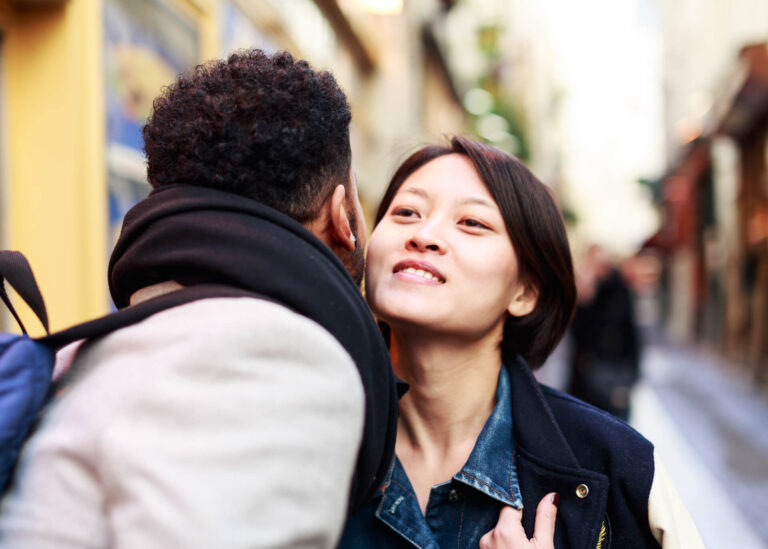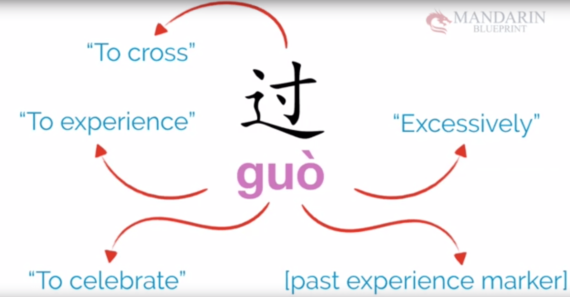14 Ways to Ask “How Are You?” In Chinese

“How are you?” is one of the first phrases you should learn when studying any language. Just as with other languages (English included), there are many more ways to ask how somebody is doing than just the standard version you see in textbooks.
If you go a little further and explore different “How are you?” phrases in Mandarin Chinese, you will instantly sound more like a native and showcase a deeper understanding of the language to the locals. Let’s take a look at some of the most common phrases and ways to say “How are you?” in Chinese so that you can start mastering the language in no time.
Seriously Impressive Ways to Start a Conversation in Mandarin
Uncover Mandarin Mastery Secrets in Our Free Webclass — Reserve Your Spot Now!
How to say “How are you?” in Mandarin Chinese
Chinese as a language has over 5,000 years of history and has grown and evolved. While there are many ways to say “how are you?” in Chinese, nuance is critical given the language’s rich culture and history. That is why it is essential to pay special attention to the context of the situation before using each phrase that you learn.
Additionally, remember to use the pinyin to help guide your Chinese pronunciation as well.
1. 你好吗? – Nǐ hǎo ma?
Asking 你好吗? (Nǐ hǎo ma?) is the most common way that people usually say “how are you?” in Mandarin when they first begin to learn Chinese. But is it actually correct?
While using 你好吗 (Nǐ hǎo ma) in daily Chinese conversation technically isn’t wrong, in reality, native Mandarin Chinese speakers very rarely use this as a greeting as it comes off as very rigid and formal.
Although this straightforward way works fine for beginners, you might want to pick up one of the other phrases from this blog post if you want to sound like a pro.
2. 你怎么样?– Nǐ zěnme yàng?
The question 你怎么样? (Nǐ zěnme yàng?) is probably one of the most natural and common ways Chinese people will ask “How are you?”, and it carries a very casual tone.
In English, a similar expression might be “What’s up?” or “How are you doing? ” that you can use between friends, classmates, family members, or even coworkers.
3. 一切顺利吗? – Yīqiè shùnlì ma?
You can use 一切顺利吗? (Yīqiè shùnlì ma?) when a friend had an interview, a sibling took a big test at school, or an officemate came back from a crucial meeting at work.
Ask this question in situations where you expect a genuine response from people rather than a simple pleasantry in return.
一切 (Yī qiè) in Chinese means everything and 顺利 (Shùn lì) means smoothly and so the English meaning of 一切顺利吗 (Yī qiè shùn lì ma?) is “Did everything go smoothly?”.
4. 最近忙些什么 – Zuìjìn máng xiē shénme?
Life moves fast, and everyone’s got somewhere to go and someone to meet! Asking the question 你最近忙什么呢? (Nǐ zuì jìn máng xiē shén me?) is a perfect way to find out what a person is busy with. It is a good question to use if you haven’t seen someone in a long time due to a busy schedule.
5. 身体好吗?– Shēntǐ hǎo ma?
The characters 身体 (shēn tǐ) in the Mandarin Chinese language mean “body,” and the 身体好吗? question is suitable for asking about your health or the condition of your body.
The right time to use this phrase is when you meet someone much older than you, and you want to check to make sure that they are still in good health.
Another reason that someone might use 身体好吗? (Shēn tǐ hǎo ma?) would be if you are checking up on a friend or family member that you rarely see while talking over the phone.
Culturally in China, it is very important to express concern for someone’s health, especially if you don’t see them often.
6. 老师好? – Lǎoshī hǎo
If you are just learning how to say “how are you?” in Chinese, the chances are that you’re a first-time learner and are just starting to take Mandarin lessons in an academic setting.
老师 (Lǎoshī) is the Chinese word for teacher and so the proper greeting when you meet your Mandarin instructor is none other than “Lǎoshī hǎo” (老师好).
Just like you can use 老师 (Lǎoshī) to address your teacher, you can add any subject or type of person you like to make a more personal greeting.
An example of this would be: 大卫好 (Dà wèi hǎo?) meaning “How are you, David?” It shows people a sign of respect and that you understand their social position.
7. 大家好 – Dàjiā hǎo?
While Lǎoshī hǎo? (老师好?) is used by students when greeting a teacher, a teacher will often use the expression 大家好 (Dàjiā hǎo) to address the class before the lesson.
It is an all-inclusive term that you can use to greet people in a meeting or when you give a speech in Chinese.
8. 最近去哪儿呢?– Zuì jìn qù nǎr ne?
It may sound a bit nosey and personal to some, but asking someone 最近去哪儿呢? (Zuì jìn qù nǎr ne?) or “Where have you been recently?” can be used as a greeting in Mandarin. However, one of the common mistakes that many non-native Chinese speakers make when replying to this question is giving a too detailed response.
It doesn’t matter where you have been; it’s more important to give a brief overview of what you’ve been up to and how you’ve been spending your time.
9. 什么事?– Shénme shì?
Imagine that you run into someone you know, and they look unusually sick or tired. 什么事? (Shén me shì?) can be used to ask “What’s the matter” when it looks like someone is not having their best day.
Although this might sound like an endearing way to ask “How are you?” in Chinese, unlike 身体好吗? (Shēn tǐ hǎo ma?), this tone is much cruder and, if said in an inappropriate context, can even instigate a fight.
It’s best to avoid using this phrase when talking to someone with a higher rank than you, as it might rub off the wrong way.
Speed Up Your Mandarin Learning Journey 3x Faster — Join Our Free Webclass Now!
10. 你最近过得好吗 – Nǐ zuìjìn guòde hǎo ma?
Imagine you run into an old acquaintance you haven’t seen in a while, and they ask you Nǐ zuìjìn guòde hǎo ma? (你最近过得好吗) meaning “How have you been spending your time?”.
Similar to 最近去哪儿呢? (Zuì jìn qù nǎr ne?), you don’t have to give them a comprehensive list of everything you’ve done; just some highlights will suffice.
There are many ways you can answer this question. For example, you could tell them you’ve been taking piano lessons 钢琴课 (Gāngqín kè), playing video games 玩电子游戏 (Wán diànzǐ yóuxì), or you might be excited to share that you’ve begun to learn Chinese 学习中文 (Xuéxí zhōngwén).
11. 你不舒服吗?– Nǐ bù shūfu ma?
One important lesson you’ll learn if you ever visit China is that Chinese people are very mindful of their health. The translation of this greeting is “Are you uncomfortable” and just like 什么事? (Shén me shì?) you can use it when someone looks tired, sick, or their body is all banged up.
Although it might not be the best idea to assume that someone is unwell based on their appearance, you can also use Nǐ bù shū fu ma? (你不舒服吗?) to check up on someone you love and make sure that they are doing well.
For example, a mother might use this while on the phone with her son at college. Or a husband might ask this question to his pregnant wife via video call while he’s away on business.
12. 还好吗?– Hái hǎo ma?
The question 还好吗? (Hái hǎo ma?) is one of the most versatile Mandarin phrases that people use as a natural response to almost any inquiry about how you are.
The English translation of this saying is “Are you still doing okay?” and the right time to use it is when your friend looks slightly troubled or after someone you know has recently gone through a difficult situation.
One example of using this expression would be after your Chinese teacher has just given you and your classmates a long and complicated lecture all in Mandarin that has left your head spinning.
At the end of the lesson, you might turn to your friend and ask “你还好吧?” (Nǐ hái hǎo ba?) especially if they look a bit dazed and confused.
13. 怎么了? – Zěnme le?
Maybe you are not feeling well, or perhaps you’ve had a brutal lesson. But if you hear 怎么了? (Zěnme le?), you know that you must not look so good. This phrase means “What’s the matter with you?” and is usually said with concern.
Chinese people tend to often inquire about your health and physical condition. While this may sound like harsh criticism, it comes from a place of love.
14. 你吃过饭了吗?– Nǐ chīguò fànle ma?
Not such a long time ago, during China’s Great Famine, many people did not have a steady supply of food, and sometimes, the only meal of the day could consist of just a single plain bowl of white rice. By seeing if someone had eaten or not, it was a sign of their health, financial situation, and overall well-being.
While today China has no shortage of food supply and things are looking better than ever, many people still remember these times, so asking if someone has eaten or not is still culturally ingrained in China as a common Mandarin greeting.
There is a true cultural feeling of love behind these words, and if you hear this phrase, it may also be an open invitation to join someone for a meal which can be the opportune time to practice your Mandarin language skills.
How to respond when somebody asks “How are you?” in Chinese
So now that you’ve learned some new Mandarin phrases to ask someone “how are you doing?” in Chinese, do you know how to answer back? While there can be many ways to reply, here are some of the most versatile responses you can use in almost any situation.
1. 我还好 – Wǒ hái hǎo
Wǒ hái hǎo (我还好) is one of the most simple and most common ways to reply if someone asks you how you are. The meaning can be translated as “I’m still good” and can be used as in the following:
A: 大卫, 你最近怎么样? “David, how have you been?”
(Dà wèi, nǐ zuì jìn xiē zěn me yàng?)
B: 我还好,你呢? “I’m fine, and you?”
(Wǒ hái hǎo, nǐ ne?)
2. 我不错 – Wǒ yě bùcuò
我不错 (Wǒ yě bùcuò) means “Not bad myself.” Use this answer only after the other person has told you how they are. It is one way to indicate if you are still doing good, but just not too good.
A: 我还好,你呢? “I’m still doing well, and you?”
(Wǒ Hái hǎo, nǐ ne?)
B: 我也不错。 “I’m not too bad myself. ”
(Wǒ yě bùcuò)
3. 我最近忙… – Wǒ zuì jìn máng…
Tell someone how you have been by answering them what you’ve been doing and what’s been keeping you busy. Have you been busy having fun with friends? Work? Have you been studying Chinese? Let your friends know!
A: 你最近忙些什么?”What have you been up to?”
(Nǐ zuìjìn máng xiē shénme?)
B: 我最近忙学习,功课太多了 “I’ve been swamped with studying, I have so much homework!”
(Wǒ zuìjìn máng xuéxí, gōngkè tài duō le)
4. 混日子吧 – Hùn rìzi ba
So how do you respond if things in your life have been pretty consistent and not much has changed? A good translation for 混日子吧 (Hùn rìzi ba) is “same old, same old.” It is a very casual way to tell someone that your life is moving at a steady pace.
A: 大卫,好久不见! 你最近过得好吗? “David, long time no see! How have you been?”
(Dà wèi, jǎojiǔ bùjiàn! Nǐ zuìjìn guòde hǎo ma?)
B: 混日子吧,你呢? “Same old, same old. How about you?)
(Hùn rìzi ba, nǐ ne?)
5. 别提了 – Biétíle
While hopefully not the case, after a bad day, sometimes you don’t even want to talk about it. The meaning of 别提了 (Biétíle) is “Don’t even ask” and while often used as a joke among friends, can also be used to brush aside any unwanted question.
A: 琳娜,你有什么事? “Linna, is everything alright?”
(Lín nà, nǐ yǒu shénme shì?)
B: 别提了。。。 “Don’t even ask…”
(Biétíle…)
Now you know how to say “How are you?” in Chinese Mandarin. Going up to someone and asking the question may be difficult at first, but a big part of learning a language is making mistakes and growing from there.
What may have seemed difficult yesterday may feel like a breeze today if you practice enough, so keep your head held high and do your best. 加油!
Are you passionate about mastering Mandarin but feel overwhelmed or believe it will cost you a fortune?
Our FREE webclass has been crafted to shatter these myths! Discover The Blueprint that has empowered thousands to speak fluent Mandarin 3-5x faster without the traditional classroom hassles.
Imagine conversing confidently with native Mandarin speakers and exploring new personal and professional horizons. This isn’t just a language learning experience. It’s a gateway to new opportunities and an enriched cultural understanding.
Don’t just dream about mastering Mandarin; take the definitive step towards making it a reality. Your journey towards Mandarin mastery is a click away.
[Register Your Free Spot Now!]
Embark on an exhilarating linguistic adventure that’s both easy and fun. The secrets to rapid Mandarin learning are about to be unveiled. Secure your seat in our exclusive webclass and redefine what you thought was possible!
“How are you?” in Chinese — FAQs
How do Mandarin greetings differ from English greetings?
Mandarin greetings are often intertwined with cultural and contextual nuances. Unlike English, where “How are you?” is a common greeting, in Mandarin, phrases like “你吃了吗?” (Nǐ chīle ma?), translating to “Have you eaten?” showcases concern and is a traditional way of greeting. Also, formality and context play a larger role in Mandarin greetings compared to English.
How can I make my Mandarin greetings sound more natural?
To make your Mandarin greetings sound more natural, immerse yourself in the culture to understand the contextual usage of phrases, practice pronunciation with native speakers, and utilize various phrases based on the social setting and the level of familiarity with the person you are greeting. You can also watch Chinese TV shows for even more immersion or listen to Chinese music.
What are some phrases to avoid when asking “How are you?” in Mandarin?
It’s advisable to avoid overly formal or rigid phrases like “你好吗?” (Nǐ hǎo ma?) in casual settings as it may come off as insincere or distant. Also, be cautious with phrases that might sound intrusive or too personal, especially with people you’re not closely acquainted with.
Are there gender-specific greetings in Mandarin?
Generally, Mandarin greetings are not gender-specific and are neutral in terms of addressing different genders. However, understanding the social context and formality required in different settings is crucial to ensuring appropriate greetings.
What are some common mistakes learners make when using these phrases?
Common mistakes include incorrect tonal pronunciation, using overly formal or informal phrases in the wrong settings, and a lack of understanding of cultural nuances associated with certain greetings. Practicing with native speakers and learning about the cultural context can help mitigate these mistakes.
Are there any taboos I should be aware of when greeting someone in Mandarin?
One taboo is to avoid asking personal or intrusive questions during initial greetings. Plus, it’s respectful to address individuals by their titles and surnames in formal settings and avoid using first names unless invited to do so.








